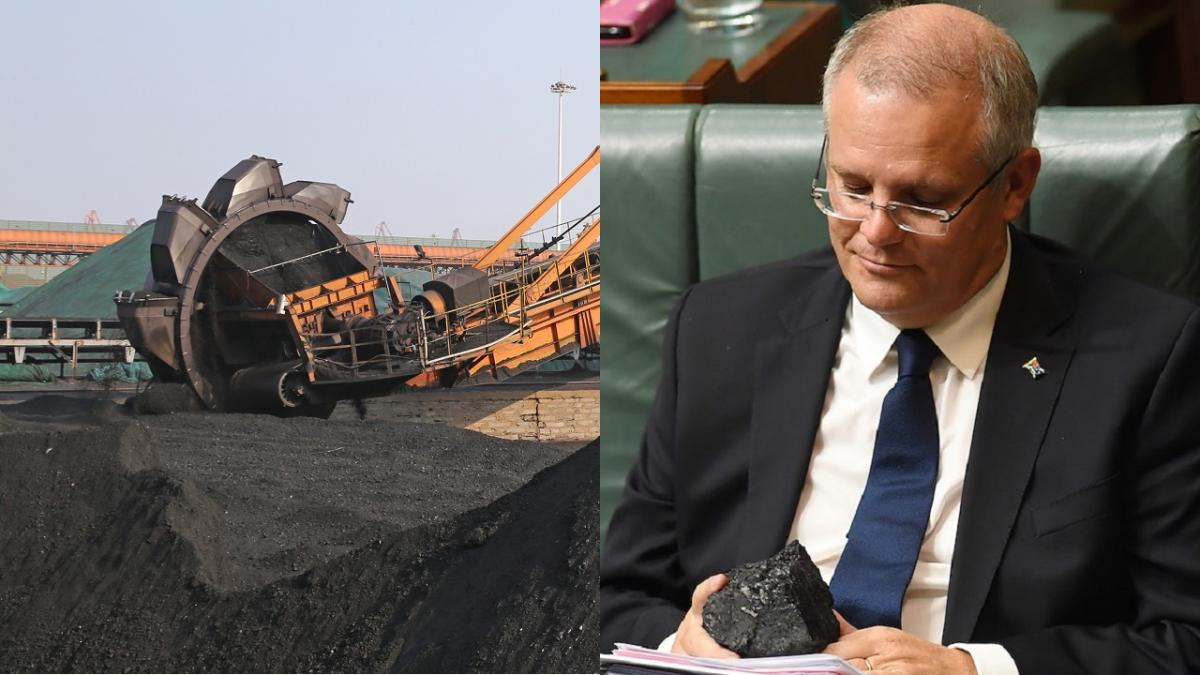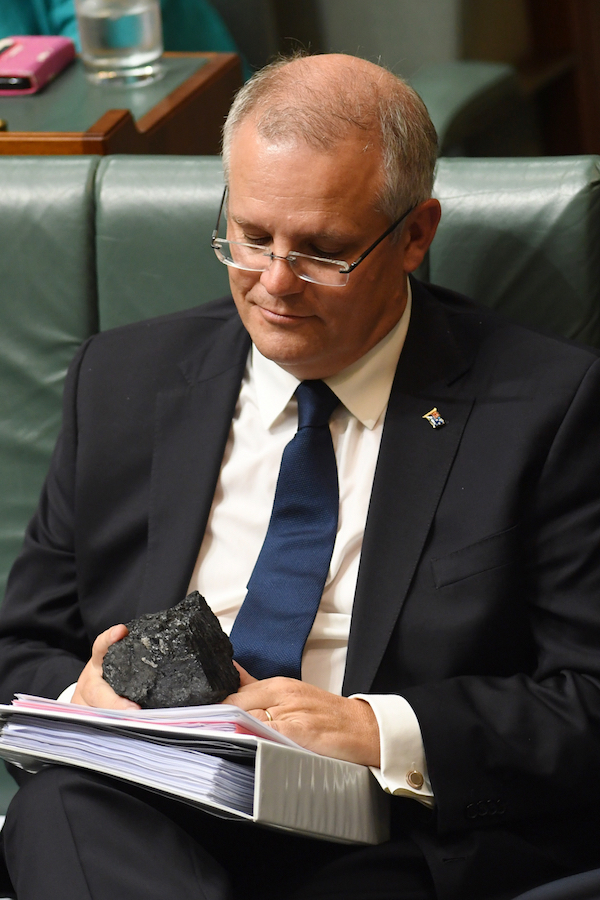
Ah, coal. It’s the little black rock that Australia loves to kiss. Now, China appears to have shut the door on Australia’s coal export industry, potentially separating us from $14 billion in annual exports. Senior Australian Government officials are in damage control. Speculation remains over whether China has actually made the call. It’s all a bit of a clusterfuck, but here’s why you should keep an eye on the situation.
What’s going on?
The Global Times, a Chinese media outlet backed by the Chinese government, yesterday issued this barnstormer of a headline:

The paper states that senior Chinese government officials have cleared the way for domestic power plants to import thermal coal from anywhere in the world — but Australia has been “shut out” from that arrangement.
The paper states the plan was designed to stabilise coal prices in China. But, as you’d expect, there’s more at play here.
You only need to look at the whole war crime shitpost thing and the wine tariff thing to see this development forms part of a broader stoush between Australia and China.
Wang Yongzhong, of the Institute of Energy Economy at the Chinese Academy of Social Sciences, is quoted in the piece as saying the new deal “could take a large share from Australian coal, as the relationship between China and Australia has been deteriorating”.
Importing coal from other countries, and relying more on domestically mined coal, seems like a pretty good way of flipping the bird to Australia.
This dispute has already caused some chaotic scenes, too. The Guardian reports numerous tankers absolutely chockers with Australian coal have been kept in limbo at Chinese ports. The new report is causing even more panic.
What would happen?
Righto, let’s turn to the Reserve Bank of Australia (RBA) for word on how a Chinese ban on Aussie coal imports could impact the local economy.
In 2018, Australia’s total coal export market was valued at $67 billion, with China accounting for $14 billion of that market. All told, China represents roughly a quarter of our thermal coal exports. That’s a lot of carbon, and a lot of cash.
Coal is our second-largest resource export, after iron ore, and the RBA reckons any “changes in export volumes and prices can have a significant effect on Australia’s GDP and terms of trade.”
Without putting too fine a point on it, China shutting out Australian coal exports would be a pretty expensive way to cap off 2020 — in the midst of a recession, no less.
Is coal really still that important for Australia?
Yes. Unfortunately. While basically every climate scientist worth their existential dread has urged world leaders to turn towards renewable energy sources, coal remains a worryingly big piece of the energy-production puzzle.
Plus, the Australian Government is still ideologically wedded to coal. Just this week, Australian Prime Minister Scott Morrison was snubbed from speaking at a UN climate summit for not locking in further emission reduction goals. And who could forget the time he brought a lump of coal into Parliament?

But even the RBA is conscious of developments in renewable energy. Back in 2018, they noted, “The outlook for thermal coal demand will largely depend on how energy generation evolves and, in particular, how fast renewable and alternative electricity generation displaces coal-powered generation.”
The kicker: “In the long run, there is considerable uncertainty around the outlook for coal consumption.”
China itself recently announced new plans for its carbon emissions to peak by 2030 and full carbon neutrality by 2060. It’d be awfully difficult to make that happen with a continual reliance on coal power, mind you.
Is the report legit, though?
While it came from a government-backed paper, the Australian Government is currently seeking clarification on whether Australian coal exports have actually been blocked.
Trade Minister Simon Birmingham is on the record as saying Australia is “deeply troubled” by the report, and is poised to chase this issue through the World Trade Organisation if the Chinese Government doesn’t formally rule it out.
Australia stands ready to “resolve these issues together,” Birmingham said, “and we urge China to clarify them, to reject the reports that have been made.”
But Australia “continues to pursue all of our rights across all different sectors when it comes to the handling of these issues.”
What now?
This whole sitch is a pretty big escalation of the China-Australia trade drama. If the powers that be do follow through with the paper’s threat, then one of Australia’s key export markets really could be stuffed.
Best case scenario: this results in some kind of realignment of Australia’s industrial priorities. Would have been cool to direct the proceeds from a lengthy period of economic growth to anything but extractive and planet-bashing industries before all of this kicked off, hey?



